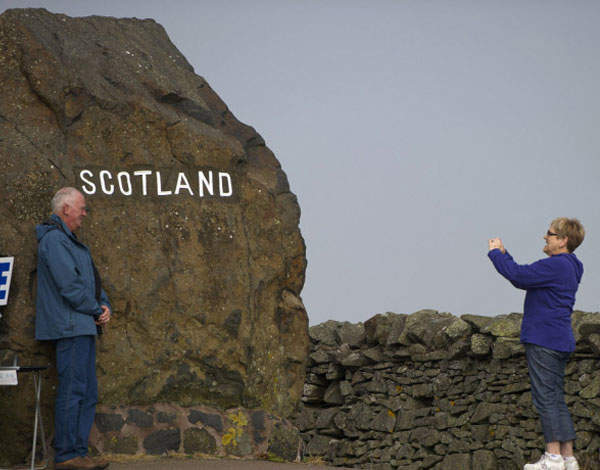

If the Scots vote Yes this week, the tax implications for their wealthy countrymen living in other parts of the United Kingdom may be significant.
It could also reverberate on wealthy individuals from around the world who have temporary residence in the UK, drawing a spotlight on the rules that encourage the rich to move to the UK.
We must assume, if independence is chosen, that wealthy Scots temporarily living in England may soon be considered non-domiciled. This would, in the absence of a specific rule to the contrary, make them eligible to claim the advantageous remittance basis of taxation.
Broadly, the remittance basis means that individuals only pay tax on income and capital gains which arise in the UK, or which arise outside the UK but which they bring to the UK. It provides significant scope for keeping income/gains outside the scope of UK tax while living in the UK. It is the bedrock of the UK’s attractiveness for very wealthy individuals from around the world.
Such wealthy Scots living in England could be put on the same footing as the multi-millionaires and billionaires from Russia, China, the Middle East and elsewhere, that occupy the mansion blocks of Knightsbridge and Mayfair. Independence could present the wealthiest Scots with a new opportunity to significantly reduce their overall tax bill.
It is hard to imagine this being very popular with the electorate on either side of the border.
However, it would be difficult to put in place rules that deny the Scots advantages that are given to other nationalities. Any attempt to do so could be challenged as discriminatory under European law.
One wonders whether this could end up with the remittance basis itself being called into question. This would have huge repercussions for the UK’s, and in particular London’s, status as a destination for the global elite.
Tax in the UK is complicated, and it will only become more so if part of the country is removed.
For example, what are the implications of independence for the English, Welsh and Northern Irish living in Scotland? Presumably they will be considered resident in Scotland and non-resident elsewhere for tax purposes.
Currently, non-residents do not generally pay capital gains tax on disposal of UK assets. Would they be required to do so?
In other words: it is conceivable that English people who happen to live in Scotland may fall outside the scope of the UK’s capital gains tax regime on the disposal of English assets.
Furthermore, if a new Scottish government takes across the remittance basis of taxation, those individuals might also avoid paying any Scottish capital gains tax as well. So Scottish-resident English people might also benefit.
Of course, to coin the famous phrase from former US Defence Secretary Donald Rumsfeld, we are dealing with ‘known unknowns’ at the moment.
Neither the Yes nor the No campaigns have given details about tax policy in the event of either outcome of the vote. The promise of more devolution and income-tax-raising powers – the so-called ‘devo-max’ option – if the union is maintained does suggest something seismic is under way whatever decision emerges.
Glen Atchison is head of the private client practice at London law firm Harbottle & Lewis. Chris Moorcroft is a tax and trust specialist at the firm






